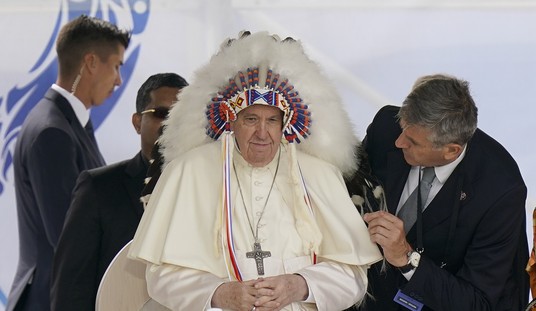Prisoner exchanges between hostile parties are as old as civilization, and there is nothing especially unique about swapping one hostage for another or something of commensurate value. Either both negotiating parties then walk away from the table and hostilities resume or they enter into further negotiations to permanently bury enmities that often involve mutual concessions.
There is something new about how the White House has approached hostage negotiations with the world’s criminal regimes in its second terms. These are not hostage swaps. They are not arbitrations with an aim toward the resolution of lasting differences through a mediated settlement.
When North Korea surprisingly freed two American hostages, they did not do so out of the kindness of their hearts. The Stalinist state has long demanded that action on their party be a response to a high-ranking American official’s visit to the country. Low and behold, as news of Pyongyang’s decision to release American hostages was breaking back home, so too were images of an American jet emblazed with the seal of the United States taxing along a North Korean tarmac. Inside that jet was Director of National Intelligence James Clapper.
North Koreans were hoping that the visit would presage a “breakthrough” in diplomatic relations with America, a nation from which they routinely exact ransoms. Credit is due to the White House that no diplomatic gesture was forthcoming in this case, but the decision to dispatch Clapper to Pyongyang was gesture enough for the Kim’s regime.
The North Korean’s must be supremely frustrated by the double standard President Barack Obama is today setting with his decision to ease America’s relationship with Cuba in the wake of that criminal regime’s release of an American hostage.
A prisoner in the communist nation in Cuba for five years, the 65-year-old Alan Gross was initially arrested for trying to provide Jewish Cuban residents with satellite radios. He was convicted of espionage and sentenced to 15 years in a Cuban jail.
The press immediately began to salivate over the prospect of loosening the restrictions in place against the Cuban regime since the Eisenhower administration.
“Today’s release of Gross, who is said to be in poor physical condition, represents a first step toward normalizing relations with the neighbor just 90-miles off the Florida coast,” ABC News reported in the third paragraph of its story on the release of Gross. Why? The release of two Americans from North Korea’s captivity did not similarly herald the opening of bilateral diplomatic relations.
While debating CNN contributor Ana Navarro over the merits of rewarding the Cuban regime for behaving like a responsible state actor, CNN anchor Carol Costello gushed over the potential loosening of restrictions on Cuba and appeared perplexed as to why they were in place to begin with.
“But there’s a reason why the Cuban government doesn’t want its citizens to have internet access, right?” Costello asked plaintively. Yes, and they are illegitimate. Full stop.
Perhaps the left, as represented by the press, are correct. Maybe the embargo against Cuba has failed on its own terms, and it is time to try something new. The press may think that the public has engaged in that debate, but they have not. The Congress has not been invited to weigh in on the necessity of continued restrictions on Cuba, and Obama’s unilateral action appeases only his intellectually sequestered left flank.
But if we are to lift trade, travel, and diplomatic pressures, it should never be done in what appears to be a quid pro quo response to the release of American hostages. The signal sent to the irresponsible nations of the world is that, so long as there is a political constituency that supports rapprochement, America may give in to your demands if you only try to ransom American citizens.
Is that not the lesson that observers in Pyongyang, Tehran, or even Moscow will internalize? And why didn’t America extend offers of normalization of relations with North Korea in exchange for the two American hostages? Or even the cessation of hostilities that are technically still active? Because there is no domestic American political constituency demanding that outcome? That seems like a particularly arbitrary and capricious way to conduct America’s foreign affairs.
That is a dangerous precedent to set which jeopardizes United States national security and, callous as this might sound, a high price to pay for any American hostages.







Join the conversation as a VIP Member